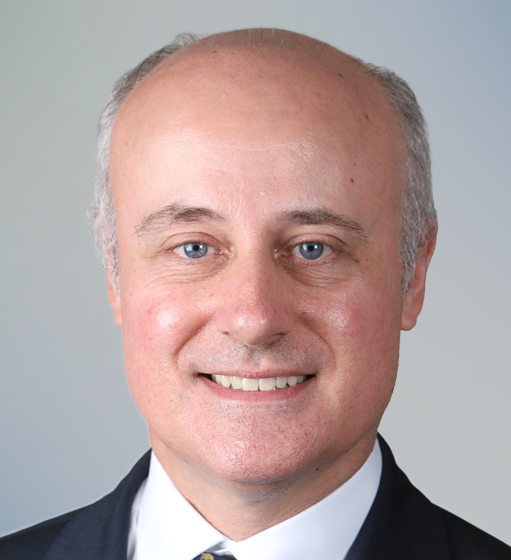Klaus Regling at Eurogroup press conference
Eurogroup press conference, 9 October 2017
First, a few words on Portugal, where the ESM participated in the post-programme monitoring mission. As you know, we always have to assess whether a country that has borrowed from the EFSF or ESM will be able to repay the obligations. Our conclusion was clear that there is no risk in the short and medium term. Portugal has made significant progress; we see that in the credit rating, we see that in the market developments, where the 10-year yield on Portuguese bond yields has fallen from 4% as recently as March this year to now 2.4%. This is comparable to what we saw in other programme countries when they exited their programmes, so it confirms our overall approach in crisis management. Of course there are vulnerabilities in Portugal, the previous speakers talked about that, and Portugal needs to be vigilant here.
The topic on the future of the ESM in the context of deepening monetary union obviously was particularly important for me and for the ESM. I was grateful that I think every speaker said that we have done a good job. That’s good, that’s reassuring, because we had some very difficult moments in the last five years. Yesterday was actually the fifth anniversary of the ESM becoming operational. Now that economic developments in Europe are better than expected by many last year, I think we have a window of opportunity to look at deepening EMU, what are the important steps, and today the role of the ESM, the possible strengthening of that role was in the focus of our agenda. We have other points in the next two months coming up.
I want to remind you that the ESM’s role has already evolved over the last five years, from initially only providing the financing for the programmes to more recently also being actively involved in the Greek programme, including the debt sustainability analysis, and working on the short-term debt measures. We are the biggest official creditor to most of our programme countries and therefore have a very clear role in these countries. What is probably not so well known is that we also monitor developments in other countries in Europe, because the ESM through its funding activities and on the investment side – where we have to invest €80 billion of paid-in capital – must be well-informed about general economic developments in Europe, in the euro area, and that means that we look in a different context, very much at developments in our largest economies and follow them very closely.
Now we see that when we look at possible crisis management in the future, it seems very likely that the role of the IMF will be smaller or might disappear. And this could then imply a greater role for the ESM . In my view, and that’s what I told ministers today, in the future, in case there is a new programme needed – which I don’t expect anytime soon – I believe that the ESM and European Commission should work together. That would mean a broader ESM engagement in programme design and programme monitoring. And to do that, we would require some additional monitoring capabilities for all euro area member states. But of course this monitoring that would be needed from the ESM side would not be a substitute for what the European Commission is doing, I want to be very clear on that point. That means we have to develop efficient and effective cooperation methods.
On Banking Union I can be very short because almost all ministers confirmed the view that there should be a backstop for the Single Resolution Fund, and that the ESM could play that role.
On the governance and legal issues, you heard the Chairman [Dijsselbloem] and the Commissioner [Moscovici] talk about that. There are different views on that. I know that intergovernmental nature of the ESM is seen with some discomfort, by the European institutions, also the European Parliament and not only the Commission. And I’ve said many times that in general I am in favour of making the ESM as part of the EU family. But it seems that this is a difficult legal process, and that in the short and medium term, it’s probably the more pragmatic way to keep the intergovernmental approach if we want to make progress on deepening EMU and on strengthening the role of the ESM in the short run. But we don’t need to lose sight that in the longer run, the integration of the ESM into the EU Treaty would make sense.
Response to question on whether the ESM should be the arbiter or watchdog of fiscal discipline
Indeed no conclusions today, but I also see significant conversion, as I said in the beginning. I think it’s moving in the direction in the future, that when there is the next crisis, and nobody knows when it happens, probably not very soon, but one day our economic system will have another crisis. And then it’s the Commission and the ESM that will work together. You remember 5, 6, 7 years ago, the troika did that job, and then the ESM joined at a later stage. And now in Greece there are four institutions involved in managing the third Greek programme. In the future, I think it will be the Commission and the ESM, I think we are moving in that direction. That does not mean that from my perspective, we would take any of the competences of the Commission away, which is not possible anyway for legal reasons – the surveillance function of the Commission is clearly defined in the EU Treaty, and it would not be possible to take that away without changing the EU Treaty. But I’m sure we’ll find efficient ways to cooperate without double work and respecting our relevant mandates.
Response to question on whether the ESM is concerned about the repayment of loans by Spain in the case of Catalonian independence
The ESM has lent to Spain more than €41 billion for the restructuring of the Spanish banking system. Spain has repaid about a quarter of that so far. Spain also intends to continue to prepay small amounts step by step. But that’s a Spanish decision and we are not worried about our claims on Spain at the moment, they are not falling due any time soon. I think they are due in about 10 years on average, so there is no immediate concern about repayments at all. Spain has to pay interest on those loans – that interest is low because it corresponds to our funding costs, and there is no concern on that side at all.
Response to question on the return of the institutions’ mission chiefs to Athens
The technical work has started already, so colleagues from the different institutions were in Athens. The mission chiefs are expected to go back in the second half of October. Later this week, many of us will be in Washington for the IMF Annual Meetings. Once that is out of the way, the mission chiefs are expected to go back.
Contacts



